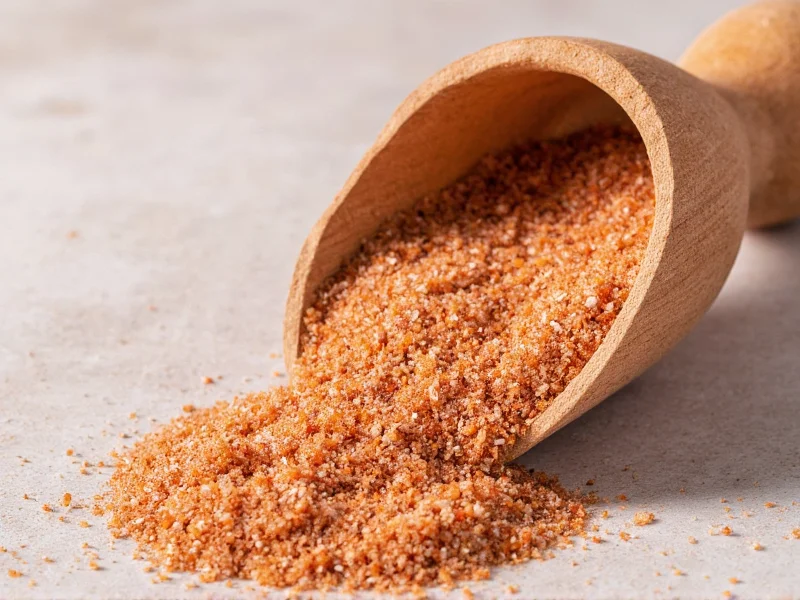Understanding the distinction between salt and spices is fundamental to culinary science. This clarification helps home cooks and professional chefs alike make more informed seasoning decisions and understand flavor chemistry at a deeper level.
Defining Culinary Categories: Spices Versus Minerals
The confusion around whether salt qualifies as a spice stems from how we organize our kitchen pantries. In grocery stores and home kitchens, salt often appears alongside spices in the seasoning section. However, from a scientific and culinary classification perspective, salt belongs to a different category entirely.
Spices are specifically defined as plant-derived products used to flavor food. They come from various parts of plants:
- Seeds (cumin, coriander, mustard)
- Fruits (peppercorns, allspice berries)
- Bark (cinnamon)
- Roots (ginger, turmeric)
- Flowers (saffron, cloves)
In contrast, salt is a naturally occurring mineral compound composed of sodium and chloride ions. It's harvested either from salt mines (rock salt) or through evaporation of seawater (sea salt). This fundamental difference in origin places salt outside the spice classification.
| Characteristic | Salt | Spices |
|---|---|---|
| Primary Origin | Geological/mineral | Botanical/plant-based |
| Chemical Composition | Sodium chloride (NaCl) | Complex organic compounds |
| Primary Function | Enhances existing flavors, preserves food | Adds distinctive new flavors |
| Processing Required | Minimal (mining, evaporation) | Often requires drying, grinding |
Why Salt Isn't Considered a Spice in Culinary Science
The misconception that salt is a spice likely persists because both are used for seasoning. However, salt functions differently in cooking than true spices:
Salt works by enhancing existing flavors rather than adding its own distinctive taste profile. When you add salt to food, it doesn't impart a "salty flavor" per se—it makes other flavors more pronounced. This is why under-salted food often tastes "flat" even if all other ingredients are present.
True spices, by contrast, introduce new flavor compounds to a dish. Cinnamon adds warmth, cumin provides earthiness, and chili powder brings heat. These are distinct flavor additions rather than enhancers of existing flavors.
The Unique Role of Salt in Cooking
Salt occupies a special category in culinary arts—often called a "seasoning" rather than a spice. This distinction matters for several practical reasons:
- Flavor chemistry: Salt affects how we perceive other tastes, suppressing bitterness while enhancing sweetness and umami
- Food preservation: Salt's antimicrobial properties have been used for centuries to preserve foods
- Texture modification: Salt affects protein structures, crucial in processes like brining meats or making cheese
- Measurement precision: Unlike spices where "to taste" is common, salt often requires more precise measurement due to its powerful effects
Common Misconceptions About Salt Classification
Several factors contribute to the persistent belief that salt is a spice:
- Pantry organization: Salt appears alongside spices in most kitchens and grocery stores
- Historical context: In ancient times, salt was as valuable as spices and traded along similar routes
- Linguistic overlap: Terms like "seasoning" are used broadly to include both salt and spices
- Culinary shorthand: Recipes often say "salt and spices" when listing ingredients
Understanding that salt isn't technically a spice helps cooks develop better seasoning techniques. Recognizing salt's unique role as a flavor enhancer rather than a flavor addition allows for more precise seasoning decisions in the kitchen.
Practical Implications for Home Cooking
Knowing the difference between salt and spices can improve your cooking in several ways:
- Balanced seasoning: Add salt early in cooking to enhance base flavors, while spices may be added at different stages depending on their volatility
- Flavor layering: Understanding that salt works differently than spices helps create more complex flavor profiles
- Substitution awareness: Realizing you cannot substitute salt for spices (or vice versa) without fundamentally changing a dish
- Health considerations: Recognizing that reducing salt affects flavor enhancement differently than reducing spices
Professional chefs often describe salt as the "foundation" of seasoning, while spices provide the "personality" of a dish. This conceptual framework helps explain why both are essential but serve different purposes in culinary arts.
Is Salt a Seasoning or Spice: The Final Verdict
When considering whether salt is a spice, the culinary science is clear: salt belongs to its own category. While commonly grouped with spices for practical kitchen organization, salt's mineral origin, chemical properties, and functional role in cooking distinguish it from true spices.
This distinction isn't merely academic—it has real implications for how we approach seasoning and flavor development in cooking. Understanding that salt enhances rather than adds flavor helps cooks develop more nuanced seasoning techniques and create better-balanced dishes.











 浙公网安备
33010002000092号
浙公网安备
33010002000092号 浙B2-20120091-4
浙B2-20120091-4